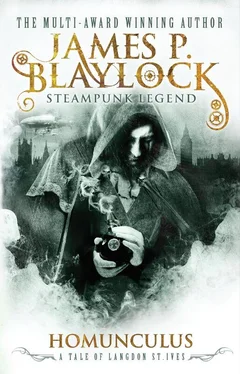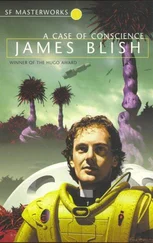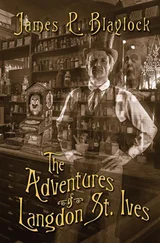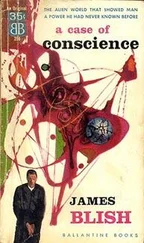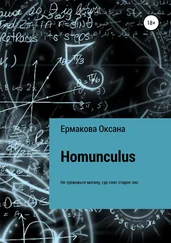James Blaylock - Homunculus
Здесь есть возможность читать онлайн «James Blaylock - Homunculus» весь текст электронной книги совершенно бесплатно (целиком полную версию без сокращений). В некоторых случаях можно слушать аудио, скачать через торрент в формате fb2 и присутствует краткое содержание. Жанр: sf_stimpank, на английском языке. Описание произведения, (предисловие) а так же отзывы посетителей доступны на портале библиотеки ЛибКат.
- Название:Homunculus
- Автор:
- Жанр:
- Год:неизвестен
- ISBN:нет данных
- Рейтинг книги:5 / 5. Голосов: 1
-
Избранное:Добавить в избранное
- Отзывы:
-
Ваша оценка:
- 100
- 1
- 2
- 3
- 4
- 5
Homunculus: краткое содержание, описание и аннотация
Предлагаем к чтению аннотацию, описание, краткое содержание или предисловие (зависит от того, что написал сам автор книги «Homunculus»). Если вы не нашли необходимую информацию о книге — напишите в комментариях, мы постараемся отыскать её.
Homunculus — читать онлайн бесплатно полную книгу (весь текст) целиком
Ниже представлен текст книги, разбитый по страницам. Система сохранения места последней прочитанной страницы, позволяет с удобством читать онлайн бесплатно книгу «Homunculus», без необходимости каждый раз заново искать на чём Вы остановились. Поставьте закладку, и сможете в любой момент перейти на страницу, на которой закончили чтение.
Интервал:
Закладка:
The cramped room in the Bailey Hotel was sufficient to hold an iron bed, but the bed, unfortunately, wasn’t sufficient to hold Willis Pule. He was sick and tired of kicking the bedstead all night, of jamming his ankle between iron posts. And the gaslamp at the head was always fizzling and sputtering and smelled so overwhelmingly of leaked gas that he had to keep one window jammed open with a pile of books. He longed for the day when he could unbox his library, arrange the volumes along shelves. That’s when his really serious study would begin. He would accomplish something then — exercise his genius.
He peered at himself in a glass tipped against another little heap of books. The bandage wrap hadn’t accomplished a thing beyond, perhaps, disguising him a bit. His face appeared even in the wan light of the faltering gaslamp to be enflamed. It seemed stretched, almost oily. He picked up a stained copy of Euglena’s Chemical Cures and studied a long discourse on the application of facial washes. He could see nothing in it. He had tried Lord knows how many plasters. At best they seemed to dry him up. That was the problem; he was certain of it. His cranial capacity, his abundant mental activity, drew fluids from other parts of his body — hence his perpetually dry and scaly hands. Perhaps a loathsome complexion was the price of genius.
He sighed and flopped back onto the creaking bed, cracking his elbow against the wall and cursing. It was his fate to be contained within a body that betrayed him. He felt at times as if he were attached to an enormous vermin — a corrupt physical bag that contained a pure, sensitive, intelligent soul. It was an attitude that might easily produce envy, but in Pule, of course, it didn’t. He saw through the world too clearly. There was little in it to attract him.
Pule had often lamented the problem inherent to genius: genius simply wasn’t self-evident. It was evident in works, and yet Pule was certain that works were condescending. One hadn’t ought to soil one’s hands. And what was there in the productions of time that wasn’t transparent? That wasn’t pretense? When one possessed — was cursed with — genius, with vision, then one saw too clearly the emptiness of it all. One was aware of the shallowness of it, the false and brittle face of things. Even the stuff of poets was, when one ridded oneself of their romantic foolery, nothing but cleverly painted backdrops hung roundabout to veil a gray and empty world.
Pule heaved a sigh and rubbed at the end of his nose. If only he didn’t see things with such insight. And Narbondo! Pule had been tormented by the hunchback on the promise of… of what? Who had waylaid Kraken and got the box? Pule had. Who had organized and carried off the recovery of Joanna Southcote? Pule had. Who was it that fetched the carp from the oceanarium? Pule. Narbondo was one of those officious inferior, self-serving braggarts who had attained a position of imagined power. And he would profit by it too. He’d muddle along, appropriating that which belonged to Willis Pule, using him, and would, in the end, stroll away with the emerald, leaving Willis Pule to explain their activities to the judge. Or so thought the hunchback.
Pule bent over and groped under the bed, hauling out the Keeble box he’d retrieved from the man on the train. He shook it for the hundredth time, but the box was silent. What in the world, wondered Pule, could be in it? There was apparently no lid to the thing. It was possible, even, that the box was designed in such a way as to foil uninstructed attempts to open it. Perhaps it would explode. It had the look about it, with its spout and crank mechanism, of an infernal device. The clothed animals painted over it argued against such a thing; but mightn’t that be just a clever sort of ruse?
In the laboratory lay the emerald box, or so Kraken had insisted — drunk, to be sure. Who was to say that this wasn’t the emerald box? The crank, in fact, might be the means of opening the thing. It might, on the other hand, be a detonator — a timed detonator. No one would build a device which would explode in one’s hands. It was no doubt a clock-spring mechanism that could be wound with the crank to a desired tension, then wind down of its own to set off the explosion. Or was it? Who could say? Pule’s mind drifted, converting the clock-spring mechanism of the box to an analog of his life — a life which had, it seemed to him, run down. It was a consequence of growing awareness, of intellect. As one’s understanding of things grew, the things themselves paled, ceased to exist almost. The world hadn’t so much wound down as he had wound up, so to speak, become taut through perception to the point at which he’d shed the world — stood alone, as it were, upon an empty hilltop, the common people scurrying below like bugs, like worms, with little or no consciousness.
The way, suddenly, was clear. He’d come to a sort of crossroad, to a point at which a choice was required — an action. To act would save him. He plucked up the box, held it in front of him, and began slowly to wind the crank. If the result was the springing open of the box, then he’d know, wouldn’t he, what lay within? If no such result occurred, then he would assume it was a bomb — dynamite perhaps — and he’d simply haul it along the dark streets to Narbondo’s laboratory. Once he got there — if he got there; the thing might easily explode on the street — he’d leave it atop the piano in exchange for Kraken’s box. And if the result was that Narbondo’s cabinet and all of Narbondo’s works were blown to hell, the entire transaction would be eminently satisfactory.
It would require tremendous will, he mused, to stroll across Soho with a live bomb under his arm. Its detonation would likely cost the lives of any number of people, but so what? In the long run of things, what were their lives worth? Hadn’t he already established that they were worms? There was no crime in stepping on a few of them. And what was crime to him anyway? It was, perhaps, more to the point to pity them the loss of Willis Pule.
He looked at himself in the mirror one last time, arching his eyebrows to heighten the look of natural intelligence and wit. His mind was set. The effort of will that would crush a lesser being had been summoned in the space of moments, and once it was called into existence, no power on earth could gainsay it.
Pule spun the crank more rapidly. He could feel tension within the box — a mechanism winding tight. It was as he thought. A grim smile stretched his lips. Would the lid fly up like a jack-in-the-box to betray the existence of the emerald? Was Kraken’s box merely a clever ploy to throw them off the scent? He listened at the spout that thrust out of the front of the box. He could hear the ratchet turnings of the clockworks. He held the box in front of his face so that the light from the gaslamp illuminated the spout. He closed one eye and squinted, following the thread of illumination up the spout and into the interior of the box. There was a click, a whir; Pule jerked back in sudden tenor. Was it a suicide device?
A jet of gas wheezed out, spraying over his face. Spitting and coughing, he cast the box onto the bed. He’d been poisoned. He knew it. The box wheezed again, and a great cloud of green dust blew out of the spout with such force that although he threw himself over backward onto the floor, the gas enveloped him utterly.
He rolled, smashing into the wall beneath the open window. The tower of books that propped the window cascaded into the street, and the window crashed down, sealing the room. Pule shrieked, a high, frightful, elflike ululation that reinforced his fear that he’d been poisoned. The air had been suddenly dyed a livid green. He would choke on poison gas! He’d been tricked. It had been a plot to eliminate the hunchback, and his betrayal of the monster had brought about his own ruin.
Читать дальшеИнтервал:
Закладка:
Похожие книги на «Homunculus»
Представляем Вашему вниманию похожие книги на «Homunculus» списком для выбора. Мы отобрали схожую по названию и смыслу литературу в надежде предоставить читателям больше вариантов отыскать новые, интересные, ещё непрочитанные произведения.
Обсуждение, отзывы о книге «Homunculus» и просто собственные мнения читателей. Оставьте ваши комментарии, напишите, что Вы думаете о произведении, его смысле или главных героях. Укажите что конкретно понравилось, а что нет, и почему Вы так считаете.
